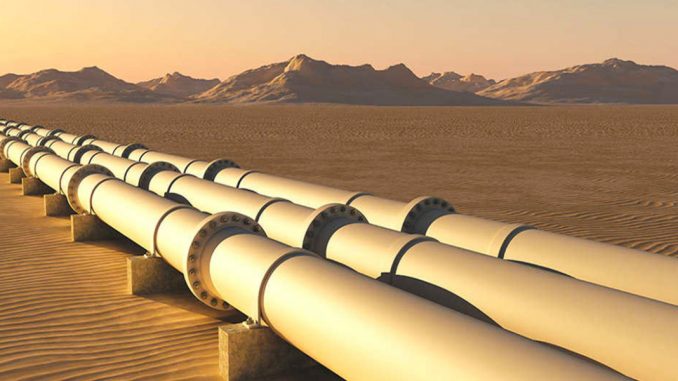
Algeria and Nigeria have reaffirmed their unwavering commitment to the revival of the ambitious Trans-Saharan Gas Pipeline (TSGP), a project that promises to reshape Africa’s energy landscape while strengthening ties with European markets.
The announcement was made following high-level diplomatic engagements in Algiers, according to Algeria Today.
Spanning over 4,000 kilometers, the TSGP is designed to transport natural gas from Nigeria through Niger and Algeria to the Mediterranean coast, offering a strategic route to European energy consumers.
As global demand for diversified energy sources continues to rise, particularly in Europe, the project has taken on renewed urgency and significance.
During his official visit to Algiers, Nigerian Foreign Minister Yusuf Maitama Tuggar met with Algerian Foreign Minister Ahmed Attaf and Minister of Energy and Mines Mohamed Arkab.
The leaders reviewed the progress of the technical and economic feasibility study launched in March 2025, which has reportedly achieved key milestones.
Nigeria is also advancing its internal infrastructure, focusing on connecting its northern regions to the gas grid.
“I salute Algeria’s unwavering support for African integration initiatives and its commitment to deepening South-South cooperation,” said Tuggar.
Both nations expressed a shared determination to accelerate the project’s transition from planning to execution.
Beyond the TSGP, Algiers and Abuja are exploring broader avenues of cooperation, including renewable energy, green hydrogen, regional electricity networks, and skills development in energy governance and engineering.
These efforts reflect a joint ambition to modernize their energy sectors and adapt to global ecological transitions.
The partnership’s influence extends to multilateral platforms such as the African Petroleum Producers Organization (APPO), OPEC, and the Gas Exporting Countries Forum (GECF), where both countries advocate for a more assertive African role in global energy governance.
Algerian President Abdelmadjid Tebboune also received the foreign ministers of the African G4—Algeria, Nigeria, South Africa, and Ethiopia—underscoring the continent’s collective push toward integration. The inclusion of the TSGP in this diplomatic framework signals Africa’s intent to transform its vast energy resources into tools for unity, economic growth, and geopolitical leverage.



